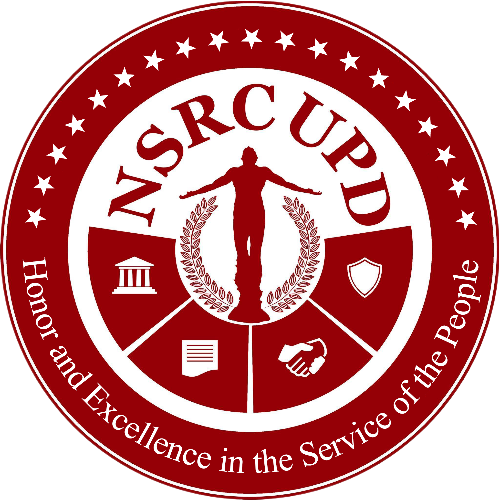
National Service Reserve Corps UPD
The NSTP Diliman, with the mandate to promote and apply the university’s primary goal to serve the people and the nation by espousing the spirit of volunteerism and social responsibility within and outside the UP community, initiate the establishment of the National Service Reserve Corps (NSRC) as an organization mandated by law. The NSRC was created by the virtue of RA 9163 or the NSTP Act of 2001 in order to provide a trained, motivated, and organized manpower reserve that can be tapped by the State for DRRM, civic welfare, literacy, national emergency, environmental protection and other similar endeavors in the service of the nation.
As included in the Implementing Guidelines and Procedures of NSRC developed by the National Disaster Risk Reduction Management Council (NDRRMC), “The NSRC School Directorate Office”, which is the NSTP Diliman, “shall be responsible for the development, organization, training, administration and operationalization of the School-based NSRC.” In line with this IGP, President Alfredo E. Pascual, through the Executive Order No. PAEP 16-02, and Vice-Chancellor for Academic Affairs through the Memorandum No. OVCAA-BMP 16-188, ordered the “establishment of the National Service Reserve Corps in UP Diliman” and to “develop and implement programs that encourage volunteerism among U.P. Diliman students including those who completed the NSTP courses.” Prof. Josefina C. Santos, was appointed as the first NSTP Diliman Deputy Director to lead the establishment of the UPD Service Reserve Corps (SRC)
The UPD SRC is a School-Based NSRC Unit (SBNU) with the following vision
To produce graduates:
(1) with a high level of socio-cultural, economic, political and environmental consciousness, aware of the relevant and timely issues on civic welfare and nation-building;
(2) that are active and sustained engagement in civic welfare and nation-building activities, equipped with adept skills, enabling competencies, right mindset and an attitude that is critical, caring, creative, humble and liberating; and
(3) who shares, instills and develops skills, competencies, right attitudes and values that rouse collective actions and empower the citizenry for nation-building and civic welfare.
